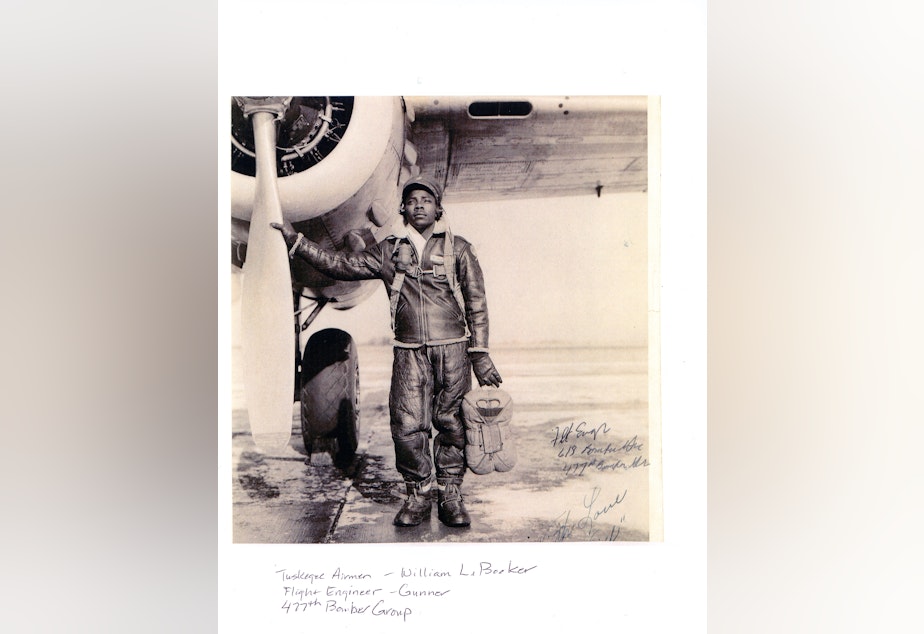William Booker, Tuskegee Airman From Kirkland, Dies At 90

William Booker, a bomber with the Tuskegee Airmen, never complained.
He didn't complain about being pushed from town to town – from Texas to Florida, to Michigan, to Indiana and to Kentucky – because whites didn’t want black troops stationed near their homes. Nor did he complain about being segregated from other fighter squadrons.
Dolores Booker, his wife of 45 years, said that later, when he visited schools, students asked him, “Well, why did you want to fight for a country that didn’t want you to serve?”
She said he would reply, “Because that was my duty as an American and I wanted to serve.”
“That’s the way he looked at it,” she said. “He was a very humble man.”
Sponsored
Booker, who lived in Kirkland, died last month. He was 90.
“We had a quote in a write-up about him, and he said, ‘Take advantage, because you have opportunities that when I was coming up, we didn’t have,’” Dolores Booker said. “‘And even in our wildest dreams we wouldn’t have them. So take advantage of them.’”
In World War II, the US military had denied blacks the chance to serve as pilots or on flight crews. The Tuskegee Airmen were the segregated black bomber and fighter squadrons the Army allowed in after public pressure.
They trained constantly, Dolores Booker said.
“They were training to go bomb Japan, and the war ended, just before he was deployed,” she said. “He didn’t get a chance to go into combat. And (the Tuskegee airmen) were eager to go into combat. They felt they were denied the opportunity for combat duty.”
Sponsored
Dolores Booker says her late husband’s greatest achievement was a US patent. His memorial service is scheduled for Saturday morning at Mount Zion Baptist Church in Seattle.

